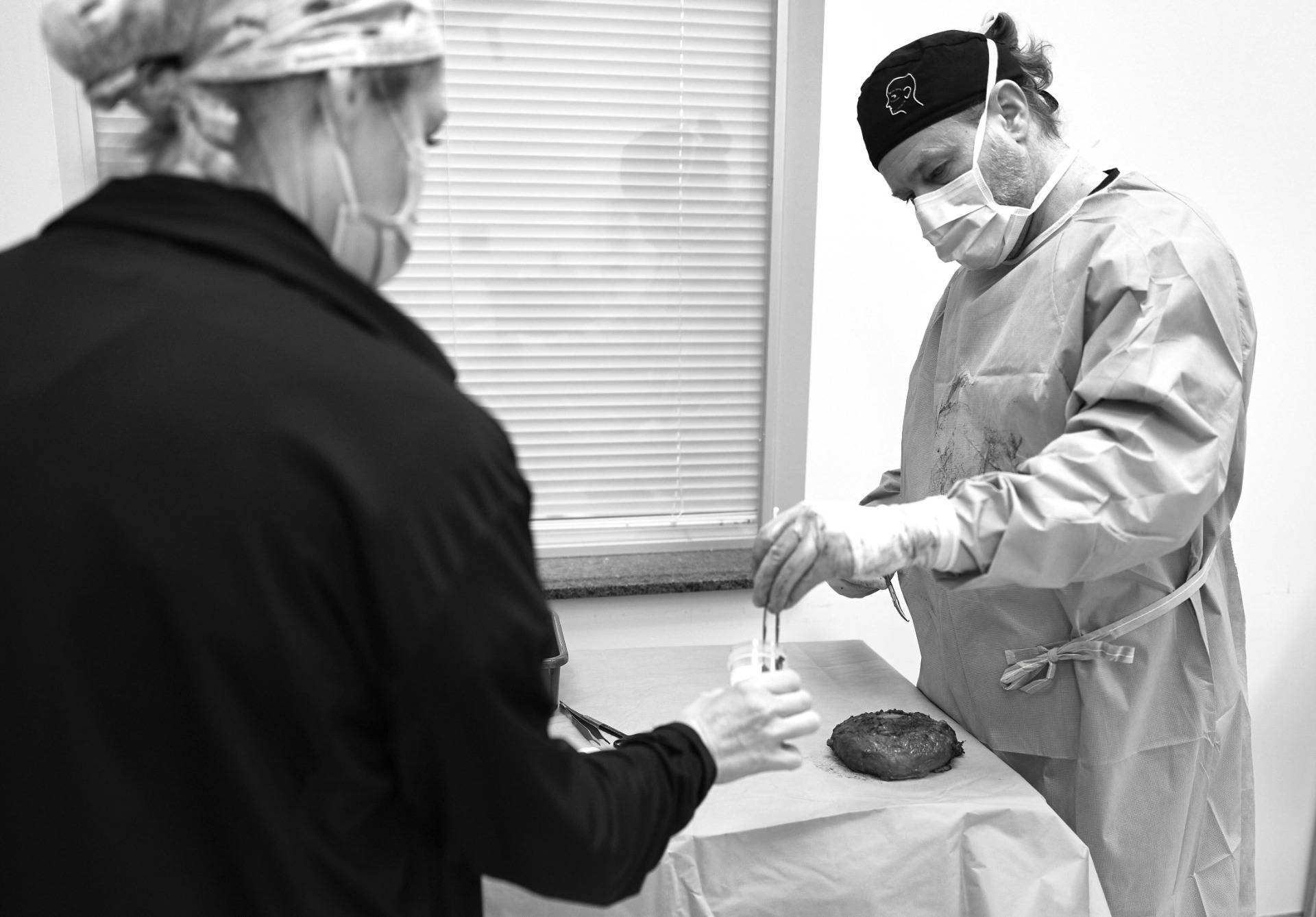
How Do You Test for Breast Implant Illness (BII)?
While the symptoms of BII can be relatively nonspecific, the diagnoses may be complicated and delayed. Scientific knowledge about BII has grown in recent years, and experts have begun to establish diagnosis standards. Dr. Whitfield has quickly become a leader in BII and has conducted thousands of consultations and discovery sessions for women struggling with Breast Implant Illness.
When Dr. Whitfield suspects BII he runs a variety of specified tests for Breast Implant Illness patients to rule out any other root cause issues. These tests evaluate food sensitivities, DNA testing for genetic predisposition, gut and microbiome health, hormonal imbalance, heavy metals, environmental toxins, mold and mycotoxins, inflammatory biomarkers and autoimmune markers. Dr. Whitfield has patients referred to him who have been diagnosed with multiple sclerosis, MS, rheumatoid arthritis, Hashimoto’s thyroiditis, Sjögren’s syndrome, Lyme disease, toxic mold exposure and fibromyalgia to name a few.
How is Breast Implant Illness Treated?
The most successful therapy, currently, is breast implant removal (explant surgery). Recently, there was a small published series which is highly controversial in nature, regarding the scar capsule that forms around the breast implant. Given the increasing number of cases and recent FDA announcement regarding breast implant related cancers such as lymphomas (ALCL) and a new squamous cell carcinoma (SCC), Dr. Whitfield approaches each breast implant removal case very carefully. During explant surgery Dr. Whitfield removes the entire capsule (Total Capsulectomy) in one piece without rips or tears (En Bloc). In thousands of explants he has already seen two cases of breast cancer, one of which was a B cell lymphoma, which is why he approaches every explant case with the same level of caution. Depending on the initial incision and breast implant size implants can be removed through a previous areola incision (as with Danica Patrick), under the fold or through a breast lift incision. Dr. Whitfield is one of the few explant surgeons who specialize in breast implant removal without the use of drains, especially when a fat transfer is being performed at the time of explant. Dr. Whitfield explains that in most all explant cases drains are not necessary just as they are no longer used in tummy tucks and Brazilian butt lifts.
How soon after Breast Implant Removal will I see results?
Some of Dr. Whitfield patients have noticed improvements as soon as they wake up in the recovery room after surgery. These patients, typically, are suffering from a severe allergic type reaction to their implants. Many of these women have struggled with significant skin rashes, dermatitis, eczema and/or other complex breakouts of the whole body. If the patient had a breast implant infection then their recovery can vary depending on the level of continuation in their breast or systemic symptoms of infection. Depending on the patient's own personal genetics, immune pathway function, diet and gut health, their recovery may take weeks to months. Root cause analysis is paramount to recovery in Dr. Whitfield’s experience. Which is why he heavily emphasizes the importance of genetic predisposition testing coupled with immune pathway dysfunction treatment in his specialized protocols.
How can I reduce my risk of Breast Implant Illness (BII)?
The best way to reduce risk of BII is to remove the breast implants and the capsule that has formed around them. Dr. Whitfield also approaches BII by targeting other sources of inflammation utilizing his recommended protocols, testing and specific supplements. His Holistic Accelerated Recovery Program (SHARP) can be used at any time prior to or after explant surgery to address other potential root cause sources of inflammation. For clients local to Dr. Whifield’s practice in Austin, Texas all testing is completed prior to surgery in most cases.
What studies have been done on Breast Implant Illness (BII)?
Currently Dr. Whitfield has an IRB approved study evaluating biofilms found on explant specimens of women with Breast Implant Illness. He has found compelling evidence that biofilms are a contributing factor of Breast Implant Illness in a large number of cases. Other future studies will be focused on functional genomics, new inflammatory biomarkers and the utility of drain-free explants.
How do I care for myself or a loved one with Breast Implant Illness?
Breast Implant Illness can be difficult to manage for many women and their families as they struggle with extreme fatigue and other symptoms, some of which may even be debilitating. Many women have visited countless doctors and specialists and still do not have definite answers or an improvement of symptoms. Following a low inflammatory diet and limiting exposure to other environmental toxins is a great place to start in reducing other sources of inflammation within your body.
When should I see my doctor about Breast Implant Illness (BII)?
If you have breast implants and have noticed an increase in unexplained symptoms such as fatigue, joint pain, breast pain or burning, enlarged axillary lymph nodes, brain fog or other symptoms that doctors have not been able to get to the root cause of; it may be time to schedule a visit with an explant surgeon.
What types of implants cause Breast Implant Illness (BII)?
BII can occur with any type of breast implant, including silicone gel-filled, saline-filled, smooth, textured, round or teardrop-shaped implants. Symptoms may appear at any time after surgery. Some women notice symptoms almost immediately while others may not have significant symptoms until years later. Older breast implants (8+ years) tend to have an increase in symptoms each year.
What if I had explant surgery but my surgeon did not remove my capsules?
Many women come to Dr. Whitfield after having had explant surgery elsewhere. If they find out their capsules were not completely removed and their BII symptoms have not improved and in some cases have become worse. Dr. Whitfield specializes in exploratory capsule removal and is able to help these patients by removing the remaining capsules and thoroughly cleaning out the breast pocket to address any remaining biofilms or debris.
